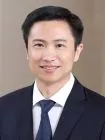In Short
The Situation: In addition to the current standard patents and short-term patents, Hong Kong is making available original grant standard patents and, starting December 19, 2019, conducting substantive examination over these patents.
The Result: Under the current patent system, an applicant can apply to re-register standard patents or file short-term patents to enjoy maximum protection terms of 20 years and eight years, respectively. Under the new patent system, Hong Kong will, on top of the existing regime, accept applications of original grant standard patents and perform substantive examination. The advantages associated with original grant standard patents compared to re-registered standard patents involve the conditions for filing rather than the actual patent grants.
Looking Ahead: The new patent system is expected to provide companies with another route to obtain patent protection and more flexibility.
After years of consultation and review of the current system, Hong Kong will implement a new patent system on December 19, 2019, as the Patents (Amendment) Ordinance 2016 and the Patents (General) (Amendment) Rules 2019 take effect. Under the current system, an applicant can apply to re-register standard patents or file short-term patents to enjoy maximum protection terms of 20 years and eight years, respectively. Under the new system, the Registrar to the Patents Registry of the Hong Kong Intellectual Property Department will, on top of the existing regime, accept standard patent applications made through the new original grant patent route and perform both formality examination and substantive examination upon request.
Revamping the Standard Patent System
The Existing "Re-Registration" Route: Currently, standard patents applied for in Hong Kong must be based on an earlier patent application filed with one of the three designated patent offices, namely, (i) the China National Intellectual Property Administration; (ii) the European Patent Office (for patents designating the United Kingdom); or (iii) the United Kingdom Patent Office.
Unlike the three designated patent offices that perform substantive examination over the designated patent applications, the Hong Kong authority only conducts formality examination (i) in the first stage, on a request to record based on a designated patent application published by the designated patent office; and (ii) in the second stage, on a request for registration and grant based on a designated patent granted by the designated patent office. When the formality examination is completed in each stage, the Hong Kong authority will publish the application/grant and provide notice of the same in the Hong Kong Intellectual Property Journal. A certificate of grant of the standard patent will be issued at the time its second stage request is published, confirming that such standard patent is officially granted in Hong Kong.
This "re-registration" route is retained to accept standard patent filings made based on earlier patents granted by designated patent offices. Going forward, this existing type of standard patent will be referred to as "Standard Patent (R)."
The New "Original Grant Patent" Route: After the new system is in effect, a standard patent application without an earlier patent application can also be filed in Hong Kong, which will, if requested, perform both formality examination and substantive examination on the application. This new type of standard patent will be referred to as "Standard Patent (O)." The advantages associated with Standard Patent (O) compared to Standard Patent (R) involve the conditions for filing rather than the actual patent grants.
When a request for grant of a Standard Patent (O) is submitted, the Hong Kong authority will commence the first stage examination on the minimum requirements and formality requirements of such standard patent application, and publish the application around 18 months from the application date of the request, or, if applicable, the earliest priority date. Within three years from either of the aforesaid dates, the applicant may submit a request for substantive examination.
As in other jurisdictions, substantive examination should determine if (i) the invention of an application is patentable; (ii) the specification contained in the application discloses the invention; (iii) all the claims contained in the specification comply with legal requirements; (iv) the matter disclosed in the specification extends beyond the disclosure in the application and an earlier specified standard patent application (if any) (if so, it would be rejected); and (v) the application is one of two relevant patent applications that are filed for the same invention made by the same inventor with the same material date (if so, it would be rejected).
It is not absolutely certain whether dialogues with the Hong Kong authority will be allowed, but we expect them to be encouraged. We expect that the Hong Kong authority will be willing to benefit from the practices in Europe and the United States. It should issue practice guidance soon to provide more details.
Once the Hong Kong authority confirms that the standard patent should be granted, it will publish the patent application. If a provisional refusal notice is issued, the applicant may request a review, and, if the application is further refused, the applicant may request a hearing.
Refining the Short-Term Patent System
Short-term patent, which is only subject to formality examination under the current system, may also be subject to substantive examination under the new system. The Hong Kong authority will perform substantive examination over a granted short-term patent if (i) a request is made by the proprietor or any third party having reasonable grounds or legitimate business interests; or (ii) such a request is a prerequisite to enforce an unexamined short-term patent. In addition, the number of independent claims permitted in each short-term patent application will be increased from one under the current system to a maximum of two.
Two Key Takeaways
- An original grant patent system will be introduced to provide patent applicants an alternative route of seeking patent protection in Hong Kong.
- Hong Kong will accept patent applications without earlier patent applications in China, Europe, or the United Kingdom.
The content of this article is intended to provide a general guide to the subject matter. Specialist advice should be sought about your specific circumstances.



